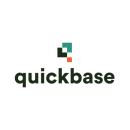Allyship comes in many forms.
For years, individual contributors from majority groups have assumed a position of neutrality around equality, relegating DEI efforts to human resources instead of using their power to affect change.
But being an ally requires a more proactive approach: learning about colleagues’ unique experiences, unlearning biases and internalized inclinations, and relearning new skills with an understanding that there’s an imbalance in opportunity that needs to change in order for everyone to succeed.
Reversing structural injustices requires input from everyone involved — not just management that reaches its position by preserving the status quo. It also, crucially, demands action. To simply carry on with a system of discrimination without active interruption is to be complicit in the current inequalities.
“Diversity, equity and inclusion is all about intention, and from intention comes action,” said Deanna Morgan, a diversity, equity, inclusion and belonging manager at e-commerce company Ahold Delhaize USA.
The Boston-area grocery retail group has taken accountability in advocating for underrepresented groups with a proactive approach to DEI. Boasting nine employee resource groups — a dramatic upgrade from just two a year ago — Morgan’s focus is now on employment engagement in an effort to improve Ahold Delhaize USA’ workplace culture.
“Employees are encouraged by leadership to get involved with our inclusion networks as members, advocates, allies, supporters and leaders — or even just to attend meetings and events as listeners,” Morgan said. “This is our first step in ensuring that all employees feel included and have a sense of belonging.”
Built In Boston checked in with seven local tech professionals to learn how their organizations demonstrate a commitment to diversity, equity and inclusion, and the steps others can take to be effective allies with marginalized groups in the workplace.
What’s one concrete action an individual contributor can take to bring about meaningful change in their organization as it pertains to diversity, equity and inclusion?
At Quickbase, we talk a lot about allyship. In fact, all of our new hires go through a one-hour allyship training within their first month. The training covers topics like identity, privilege and systemic oppression, while also bringing it closer to home. We review ways we can show up as mentor allies by being a coach and providing feedback, sponsor allies by connecting people with opportunities and providing amplification or visibility, structural allies by influencing organizational policies or practices, or cultural allies by speaking up and addressing biased actions or behaviors. It’s important to not only educate but also provide tools for people to show up in meaningful ways for their colleagues.
It’s important to not only educate but also provide tools for people to show up in meaningful ways for their colleagues.”
How does leadership at your company encourage individual employees to be vocal and active in driving forward these initiatives?
Our executive leadership team has been very supportive of our DEI journey at Quickbase. Last year, we formed our first employee resource groups. They are employee-led and executive-sponsored. Executive-sponsorship not only provides leadership and guidance for the ERGs and their leaders, but also helps to amplify and advocate for the goals of the ERGs. The executive sponsors help to connect the goals, activities and initiatives of the ERGs to the broader business strategy and company priorities. The work is centered around professional development for the ERG members, education and awareness for people within and outside of the ERG, recruitment and retention, and social impact and shared values. It is a mutually beneficial relationship that both elevates the work of the ERGs and makes sure that there is a DEI lens when strategic decisions are being made.
Quickbase is an application development platform.

What’s one concrete action an individual contributor can take to bring about meaningful change in their organization?
At The Predictive Index, we are stronger when we celebrate our differences. The diversity, equity, inclusion and belonging program, Change@Work, was born out of the passion of an employee advocating for real change after the killing of George Floyd. The Predictive Index prioritizes inclusion as a catalyst for positive change, with employee leadership and transparency as the other guiding principles of Change@Work.
The DEIB vision and roadmap were developed from the ideas of our employees, including the inclusion audit, an internal review of our terminology and processes to be more inclusive. We also launched a pro bono program as part of our commitment to nonprofit organizations focused on furthering equity and access for all people to improve social good for generations to come. By investing in the talent optimization of nonprofits, The Predictive Index will further its mission of “better work, better world.” After a year as an organizational key initiative, Change@Work transitioned into a standing department and hired a program manager in October 2021.
Our mission doesn’t happen on its own. It takes a proactive mindset, self-awareness, desire and the drive to change.”
How does leadership at your company encourage individual employees to be vocal and active in driving forward these initiatives?
Our mission doesn’t happen on its own. It takes a proactive mindset, self-awareness, desire and the drive to change. It begins with us learning from our mistakes and striving to do better. Change@Work empowers all staff to actively participate in the movement for change.
In 2021, we launched a series called Changemakers as a learning and development initiative to bring awareness of different cultures and dimensions of diversity. We offer the opportunity for employee involvement at any level to honor our external and internal diversity, as the planning, design and execution of diversity awareness celebrations do not fall on the shoulders of any one person or team.
We plan to pilot ERGs in the second quarter of 2022 to continue to foster a sense of belonging. ERGs will create a psychologically safe space for networking and connection, as well as an opportunity for leadership development for the group leaders.
The Predictive Index works in the talent optimization space.

What’s one concrete action an individual contributor can take to bring about meaningful change in their organization?
At Curriculum Associates, we value a people-centered approach that empowers individual contributors to advocate for their personal and professional goals as well as company aspirations. For the needle to move on diversity, equity and inclusion, employees should start by having an open and honest conversation with their manager about their values and long-term vision. This not only provides clarity and a foundation, but it also paves a path for the organization to support employees in their journey.
We’ve had great success with this approach. Curriculum Associates started a mentorship program for employees who are Black, Indigenous and people of color. This initiative stemmed from a conversation about the desire for BIPOC employees to have a designated space for career development with peers who look like them. We launched that program this year, and today, more than 50 mentors and mentees meet monthly. So far, the reception has been positive, and we’re excited to see how the conversations from these relationships will evolve to create and support new initiatives.
Our strength is our people. We want to encourage and empower them to be change agents from within.”
How does leadership at your company encourage individual employees to be vocal and active in driving forward these initiatives?
Our diversity, equity and inclusion work is grounded in data-driven practices, cross-functional collaboration and data transparency. Our strength is our people. We want to encourage and empower them to be change agents from within.
To do that, we provide our employee resource groups with internal data on recruitment, retention and attrition so that our checkpoints can be opportunities for collaboration, engagement and accountability.
Our leadership drives a culture of mutual respect and collective ownership. Our belief is that changemakers come from every level and equity tier, and that inclusion and belonging policies need to be co-constructed from the ground up to be successful.
Curriculum Associates is an edtech company that delivers culturally relevant tools for children.

What’s one concrete action an individual contributor can take to bring about meaningful change in their organization as it pertains to diversity, equity and inclusion?
There is no one-size-fits-all answer to creating meaningful change around diversity, equity and inclusion. It’s an accumulation of small, impactful changes that oftentimes seem unimportant or irrelevant. It could be as small as a person taking time to become aware of bias or having a conversation with someone with a different cultural heritage.
For example, after hearing me speak to the company about cultivating DEI in our culture, one of our senior leaders at Ahold Delhaize USA came to me asking what they can do to make a difference in their employees’ lives in the area of diversity, equity and inclusion. They felt like they were looking at DEI reactively instead of proactively, which in turn made them feel like they were taking part in creating unconscious biases. I told them reaching out to me with the intention of making a difference was a small, yet meaningful change, which ended up leading to a larger conversation with the greater team about DEI and how we can help to improve our workplace culture.
There is no one-size-fits-all answer to creating meaningful change around diversity, equity and inclusion.”
How does leadership at your company encourage individual employees to be vocal and active in driving forward DEI initiatives?
Our focus right now is on employment engagement. We currently have nine inclusion networks, or resource groups, and two more launching, as well as a refined DEI council that now meets monthly. Last year, we only had two resource groups and a council that met somewhat infrequently. Our networks advocate for the Black experience in the workplace, the LGBTQIA+ community, parents or those who aspire to be parents, awareness of spiritual practices, courageous conversations around race and discrimination, volunteerism, destigmatizing mental health in the workplace, women working in tech and others.
What’s one concrete action an individual contributor can take to bring about meaningful change in their organization?
We started a group at iZotope called Equity Learning Lab, where we come together to actively learn about systemic inequities and how to address them. In doing this work, we’ve learned to adopt a growth mindset and remind ourselves not to avoid difficult conversations, as these are the moments when you learn the most.
It’s also important to remember that these discussions aren’t always about you — it’s about making your environment better for people of marginalized identities. If you’re an ally trying to make change, don’t let your ego get in the way. Be vocal about your strengths and weaknesses as a contributor. If you’re not an expert, don’t pretend to be.
You’ll know your leadership’s interest in making change is authentic if they’re eager to take part, rather than placing the responsibility solely on the shoulders of the individual contributor. Give them roles in the initiatives you start and don’t be afraid to ask for what you need.
Finally, don’t feel the need to fill in all the blanks. You may have questions that require more expert opinions. When in doubt, research and ask an expert for help. Bring remaining gaps to leadership for additional support.
Be vocal about your strengths and weaknesses as a contributor. If you’re not an expert, don’t pretend to be.”
How does leadership at your company encourage individual employees to be vocal and active in driving forward DEI initiatives?
iZotope benefits from C-suite support of these practices. Members of our leadership have often said that we’re willing to lose customers if it means being vocal about what we believe in. They’re also the first to admit that we have a long way to go to make our audio technology products more accessible, to create a more inclusive employee experience and to be more environmentally sustainable.
Many companies only focus on recruiting for diversity, equity, inclusion, belonging and accessibility. But that’s only one piece of the puzzle. If you don’t have similar goals to make your company culture psychologically safe for all identities, you’re setting everyone up to fail. Are you recruiting people with disabilities but not making employee resources and practices accessible? Are you recruiting Black talent but not training management to recognize and address anti-Black racism? Are you requiring people of color to assimilate to a white-dominated company culture in order to advance? Addressing cultural inequities is critical to a company’s success, and it starts with leadership. Having active sponsorship from executives and knowing your leadership supports an inclusive culture makes it easier for individuals to speak up and drive sustainable initiatives.

What’s one concrete action an individual contributor can take to bring about meaningful change in their organization?
Share your network with others. I founded Tech By Superwomen, a platform and movement focused on conversations about diversity in tech. The idea came about in 2011, years before I joined Capital One, as I was preparing to attend the South by Southwest conference in Austin, Texas. I wanted all of the intergenerational, multiethnic, multiracial, really cool women leaders who inspire me to know each other. It’s since grown into a two-day summit where women can bond over growth and development, mentorship, and the power of connections.
That kind of support gives associates a tremendous opportunity to grow and try new things.”
How does leadership at your company encourage individual employees to be vocal and active in driving forward DEI initiatives?
One of the things I think Capital One does well is leading diversity, inclusion and belonging work from all parts of the business. You have technology leaders who are leading key business initiatives also saying, “This is important,” and committing resources and time to calling attention to it.
After I joined Capital One in 2017, I was in the process of organizing another Tech By Superwomen summit. Capital One sponsored the event and gave me the time and respect to pursue the event. I appreciate that Capital One is willing to invest in me outside of just what I do for work. That kind of support gives associates a tremendous opportunity to grow and try new things.
What’s one concrete action an individual contributor can take to bring about meaningful change in their organization?
Don’t just speak up for yourself. Be an ally and speak up for others. You don’t need to be a member of the leadership team to do this. This can be achieved in a couple of ways: By providing micro-affirmations, showing genuine curiosity, being fully present in conversations, and flexing your EQ muscles to show compassion and empathy. It’s also important to act as an ally and acknowledge people who don’t feel confident enough to speak up for themselves.
One way I’ve done this is by speaking up for the people who have great ideas but might not be acknowledged for them in group settings. The impact of an action like this goes a long way, helping build confidence not only in the person you’re referring to, but also in anyone else who might be hesitant to speak up in the future. When others see this kind of behavior, they are more likely to act as an ally in future situations.
Don’t just speak up for yourself. Be an ally and speak up for others.”
How does leadership at your company encourage individual employees to be vocal and active in driving forward DEI initiatives?
As an information technology company, Vendr tries to ensure that we present opportunities to be active and vocal for all of our employees, and we provide prompts that make it easier to do so.
One way that we’ve done this is by holding biweekly diversity and inclusion meetings that are open to all. Our moderators rotate between members of leadership and employees interested in specific diversity and inclusion topics. They provide an opportune communal environment to share leadership and company perspectives in a fast and digestible manner, while also allowing employees to express thoughts and opinions in a supportive environment. Since the beginning of this initiative in November 2021, we have hosted nine sessions and have received feedback that people truly appreciate having a forum to come together to share ideas and learn from each other.

















